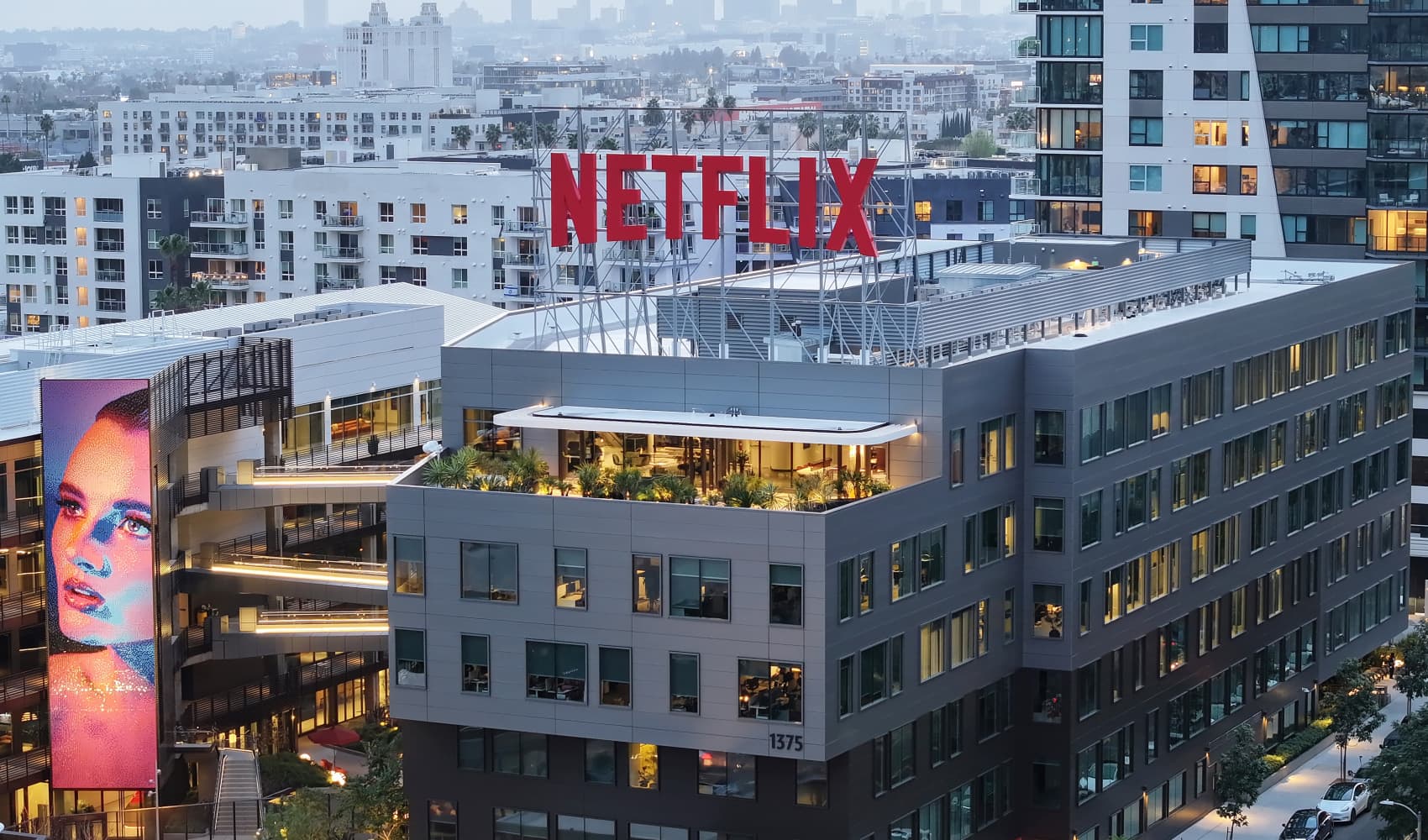
This is CNBC's live blog covering Asia-Pacific markets.
Hong Kong's Hang Seng index tumbled nearly 2% to a new low for 2023 as Asia-Pacific markets mostly fell on Wednesday.
The index briefly entered bear market territory and closed 1.94% lower at 18,234.27 as China's latest manufacturing purchasing managers index slid for a second-straight month in May to 48.8, a steeper contraction than April's 49.2.
Mainland Chinese markets were also all lower, with the Shanghai Composite falling 0.61% to end at 3,204.56 and the Shenzhen Component down 0.7% to finish at 10,793.85.
We're making it easier for you to find stories that matter with our new newsletter — The 4Front. Sign up here and get news that is important for you to your inbox.
In Japan, the Nikkei 225 retreated from its 33-year high and fell 1.41% to close at 30,887.88, while the Topix declined 1.32% to 2,130.63.
Australia's S&P/ASX 200 dropped 1.64% to end its session at 7,091.3 as the country's weighted inflation rate rose more than expected to 6.8%. The reading was higher than the 6.4% expected by economists polled by Reuters.
South Korea's Kospi reversed earlier gains and lost 0.32% to close at 2,577.12 while the Kosdaq advanced 0.64% to 856.94.
Money Report
Overnight in the U.S., all three major indexes ended mixed as Wall Street considered the likelihood of Congress passing a tentative deal on raising the U.S. debt ceiling amid growing opposition within the GOP.
The Dow Jones Industrial Average lost 0.15% and the Nasdaq Composite gained 0.32%. Meanwhile, the S&P 500 eked out a marginal gain, after trading both above and below the flatline during the session.
— CNBC's Brian Evans and Alex Harring contributed to this report
Thailand raises its interest rate by 25 basis points to 2%
Thailand's central bank raised its benchmark reverse repurchase rate to 2%, up from 1.75%, the Bank of Thailand said in a release.
This is the sixth straight rate increase since the Bank of Thailand started raising rates in August 2022 from a base of 0.5%.
The BOT explained while headline inflation slowed, core inflation remains "elevated," and inflationary risks still come from greater demand pressures "amid expanding economic activity and higher cost pass-through from supply pressures."
The Thai baht weakened slightly against the greenback to trade at 34.75 on Wednesday.
— Lim Hui Jie
Hong Kong stocks plunge nearly 3%, index falls into bear market territory
Hong Kong's Hang Seng index fell nearly 3% in Wednesday's afternoon session, entering bear market territory on an intraday basis as it hit levels more than 20% below its January peak.
The decline was led by basic materials, energy, health care and technology stocks – the Hang Seng Tech index fell 3.62%.
Shares of NetEase fell 6.45%, Meituan shed 5.5%, Baidu fell 5.34%, and JD.com declined 5.31%.
– Jihye Lee
U.S. chipmakers would want the government to 'toe a very fine line': BMO Family Office
American chipmakers embroiled in the U.S.-China chip war are going to push back if Washington imposes more export controls on China, said Carol Schleif, chief investment officer at U.S.-based BMO Family Office.
"Clearly businesses in the U.S. want the government to back off a bit and toe a very fine line," said Schleif on CNBC's "Squawk Box Asia" on Wednesday.
Her comments come after Nvidia's CEO Jensen Huang last week called China a "very important market" and warned that chip wars with China risk "enormous damage" to U.S. tech.
In a retaliatory move to Washington's efforts to cut off China's access to high-end chips, China banned the use of Micron — the biggest U.S. memory chip maker — chips in China in May.
BMO Family Office's Schleif said that the government wants to ensure security and protection of intellectual property but at the same time, businesses need to participate in a global market.
"I would imagine that the government is going to listen to the heavy lobbying from businesses because we have got a lot of important chipmakers," said Schleif.
She added that while the U.S. invented semiconductors, most of the manufacturing are outside of the U.S. "It is just as important for us to rebuild the infrastructure that we have here to continue to play and grow our position in those chips."
— Sheila Chiang
North Korea says its first spy satellite launch ends in failure, defense stocks flat
North Korea's first attempt at launching a military spy satellite resulted in failure on Wednesday, with South Korea's military picking up wreckage after the carrier rocket crashed into its western waters.
North Korea's state media agency, the Korean Central News Agency, said that an "accident" occurred during the launch of a military reconnaissance satellite.
"The carrier rocket 'Chollima-1' fell to the West Sea of Korea after losing thrust due to the abnormal starting of the second-stage engine after the separation of the first stage during the normal flight," it said on the English language version of its website.
South Korean defense stocks seemed unmoved by the Wednesday launch, with Hanwha Aerospace and Korea Aerospace both flat in Seoul's afternoon trade.
– Jihye Lee
China's factory activity disappoints
China's official measure of factory activity for May came in at 48.8, below the 50-mark that separates growth from contraction — and missing the 49.4 estimate from a Reuters poll.
A weak read in that manufacturing measure "has been a solid precursor to policy easing," Morgan Stanley analysts said in a May 17 report.
"If growth does not accelerate sufficiently to narrow the output gap, social stability risk may rise and eventually trigger more meaningful stimulus," they said.
The National Bureau of Statistics noted the purchasing managers' index for large manufacturers came in at 50, while that of smaller manufacturers was lower. The index for services activity remained in expansionary territory at 54.5, but marked a second-straight month of decline.
— Evelyn Cheng, Jihye Lee
Australia's inflation rose more than expected to 6.8% in April
Australia's headline inflation hit 6.8% in April, higher than the range of expectations from economists polled by Reuters. The poll of 19 economists saw predictions range from 5.9% to 6.6%.
The country's statistics bureau elaborated that the most significant price rises were in housing, which saw a year-on-year increase of 8.9%.
This was followed by increases in food and non-alcoholic beverages, as well as transport, which saw increases of 7.9% and 7.1% respectively.
— Lim Hui Jie
CNBC Pro: AMD shares jumped last week on the A.I. buzz. Wall Street weighs in on the stock's future
Wall Street is again abuzz over artificial intelligence ever since chipmaker Nvidia reported blowout earnings last week.
Apart from Nvidia, investors have piled into stocks that could benefit from AI. One of them is Advanced Micro Devices.
But what lies ahead for the stock and does it have the potential to surge further?
CNBC Pro subscribers can read more here.
— Weizhen Tan
Japan's retail sales in April misses estimates
Retail sales in Japan grew 5% year-on-year in April, government data showed on Wednesday.
The latest reading is also a sharp decline from the growth of 7.2% seen in March and sharply missing estimates of 7% in a Reuters poll of economists.
The Japanese yen slightly strengthened to below the 140-mark last traded at 139.71 against the greenback.
– Jihye Lee
China's factory activity expected to remain in contraction territory
China's National Bureau of Statistics manufacturing purchasing managers' index is expected to remain in contraction territory with a reading of 49.4, below the 50-mark that separates growth and contraction, a Reuters poll of economists showed.
The factory activity reading for May comes after April's reading fell below estimates to 49.2, marking the lowest since December 2022.
The Caixin manufacturing purchasing managers' index for May is expected to be released on Thursday, with economists surveyed by Reuters forecasting a reading of 49.5.
— Jihye Lee
Fed's Barkin warns of stubborn inflation
Richmond Fed President Thomas Barkin warned that he thinks inflation will remain stubborn going forward, noting that he hasn't "backed off" from his rate forecast — which he said is among the higher ones within the central bank.
— Fred Imbert
Oil slides more than 4%
Oil prices were down more than 4% on Tuesday as market observers weighed the likelihood of Congressional approval of the U.S. debt ceiling agreement and looked to the OPEC+ meeting slated for this weekend.
Brent crude dropped $3.28, or 4.3%, to $73.79 a barrel. U.S. West Texas Intermediate crude lost $3.06, or 4.2%, to $69.61.
Energy stocks were the worst performer in S&P 500, down around 1.5% in Tuesday's session. With Wednesday marking the last trading session of the month, the sector is also set to see the worst performance in May with a 9.3% drop so far.
— Alex Harring
Nvidia reaches $1 trillion market cap
Nvidia shares added to a recent string of gains on Tuesday to hit a $1 trillion market cap.
With Tuesday's moves, Nvidia joins an elite club of companies with a $1 trillion market cap or more. That group includes Alphabet, Apple and Microsoft.
Shares gained more than 4% in early morning trading to last trade at around $405.56. Shares need to hold above $404.86 to maintain that distinction during Tuesday's trading.
— Samantha Subin
Tesla shares rise following reports of Musk in China
Tesla shares rose more than 3% in premarket trading following reports of CEO Elon Musk's trip to China.
Reuters reported Monday that a private jet used by Musk arrived in China. He's expected to meet with senior Chinese officials and visit the electric vehicle maker's Shanghai plant, according to Reuters.
The trip comes as Bank of America analyst Matty Zhao said Monday that China would likely be the world's largest electric vehicle market by 2025, accounting for between 40% and 45%. That would mark a decrease as the country current made up about 60% of global market share in 2022, but Zhao said growth in the U.S and Europe would not be enough to make another country the biggest market in 2025.
— Alex Harring






